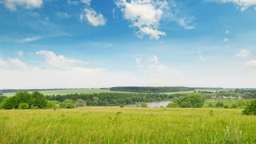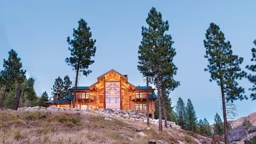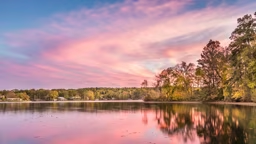 Location, location, location. If you've heard this real estate mantra once, you've heard it a thousand times. But what does it really mean to you as you search for the perfect spot for your log home? In its most basic form, it means you can build the perfect log home but if you don't put it on the right piece of property in the right locale, you won't get all the enjoyment you deserve out of your home. That's why few decisions in the home building process are as important as choosing property. The problem is, buying land often becomes an emotional purchase. And while the romance and aesthetics of a piece of property are important, those things need to be balanced with some more practical considerations. Do You Need Help? Real estate transactions are more complex than ever, so you should seriously consider finding a land broker, developer or real estate agent to guide you through the land-buying process. Choose a local broker/agent who is an expert on the area. Finding Perfection Buying land is an investment, so you need to approach the process at least partially from a business perspective. One way to do that is to look for property in an area that is on the rise. Steer clear of neighborhoods that feature run-down or half-built homes. Just as importantly, avoid becoming excited about a piece of land before you know everything about it. If you fall in love with the physical attributes of the land, it will be all that more difficult to sort through the regulations that will affect how you can use it. Rural Considerations Think long and hard about how rural you really want to be so you don't suffer from culture shock your first night in your new log home. There are different levels of seclusion, so it's up to you to find the right balance of privacy and convenience. The more the two come together, the higher the price tag. There are also development costs when building on a rural site. When buying rural property, you need to consider: Water. If you can't tap into a municipal water system, you'll need to drill a well. This can add substantial cost to a project. You should also make sure the water is potable (fit to drink) and that there are no environmental issues. Sewer or Septic. Although tapping into a local sewer system is ideal, it's often not an option in rural locations. Before you set up a septic system, have a perc test done on your land to make sure the land is porous enough to facilitate drainage. Power. If power lines don't run near your property, you'll have to pay to bring them to your site. Surveys & Zoning Restrictions If the land you're considering hasn't been surveyed recently or if boundary markers aren't clear, have a new survey done. It will show you exactly how much acreage you're buying and protect you legally. Once you know exactly where the property lines begin and end, research the land around your parcel. The goal here is to make sure your quiet wooded lot won't be surrounded by shopping malls and commercial developments 10 years down the road. Some of the more common ordinances regulate the maximum dwelling size or the materials you can use to build your home. You may be restricted to certain color palettes for roofing, siding or windows. Some covenants restrict outbuildings such as sheds, gazebos or playhouses. Water features like pools and fountains may be limited. |
Property Shopping: Finding Your Piece of the Rock
What to look for while shopping for property for your log home—and what you should know before you sign on the dotted line.











